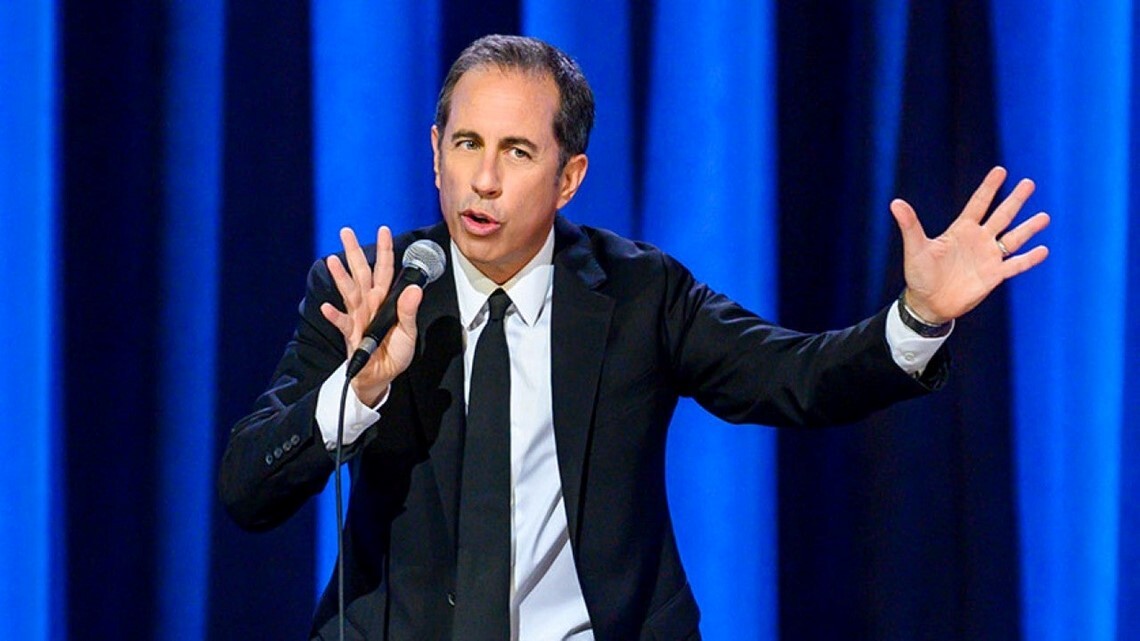As he promotes his Pop-Tart origin film Unfrosted, Jerry Seinfeld’s comments on the disappearance of traditional masculinity and his vocal support for Israel have led critics on the Left to brand him as Right-wing — a treatment many comedians have received in recent years.
Historically, Seinfeld has refrained from overt political engagement. His humour has often focused on the mundane, shying away from the contentious while poking fun at Oxford shirts, Nilla wafers, and button-fly jeans. Indeed, he was the emblem of the apolitical humorist all too willing to opine about “nothing.”
Since Hamas’ surprise attack on October 7, though, his support for Israel and photo ops with IDF soldiers have come under fire. The belief held by some on the Left is that the comedian functions as a mouthpiece for Israeli violence, a perception that has attracted significant backlash for him and other Jewish celebrities thought to have done likewise.
The Right’s eagerness to embrace Seinfeld highlights a broader trend. Conservative circles have increasingly sought validation from cultural icons, particularly those willing to challenge “wokeness” and political correctness. Here, Seinfeld got the biggest endorsement of all when X owner Elon Musk posted a photo of the comedian alongside the caption “Make comedy legal again!” This thirst for acceptance mirrors the reception given to a fellow star comedian like Dave Chappelle, who, despite making controversial statements about trans people, has never come anywhere close to aligning with conservative politics. Meanwhile, less well-known performers like Shane Gillis have rebounded from past cancellations by producing material that speaks, at least in part, to this underserved, Right-of-centre audience.
Seinfeld’s stance should be considered within the broader spectrum of American political attitudes towards Israel, where support for the Jewish state is hardly an exclusively conservative position. Prominent Democratic figures, such as Senators John Fetterman and Chuck Schumer (as well as his Left-wing comedian cousin, Amy Schumer, and pro-Bernie Sanders “funny girl” Sarah Silverman), have consistently endorsed pro-Israel policies. Similarly, other Left-leaning cultural commentators have lamented the stigmatising of traditional male behaviours — again without leaving the Left.
Over the past decade, the cultural climate for comedians has become increasingly politicised, creating an ever-expanding minefield where even a handful of comments on sensitive topics can quickly define a public figure’s political alignment, regardless of their broader beliefs or intentions (Seinfeld, for example, recently expressed dismay at the prospect of a second Trump term). This environment forces comedians into a precarious position where their artistic expressions and personal beliefs are continually dissected, often leading to mischaracterisations and oversimplified labels — this performer is “woke,” that one is “based.”
Such a politicised environment may lead to more cautious performances or, conversely, embolden others to double down on their controversial stances. Seinfeld, for his part, has responded by claiming that he merely wants to follow “the immutable rules of comedy” without the application of such partisan tags.
Unfortunately, the short-term future of comedy will likely see an ongoing tension between maintaining artistic freedom and addressing the cultural and political sensitivities of the time. Hopefully, however, this period of tension will eventually pass as people tire of the endless cavalcade of denunciations of their favourite comedians. Although getting worked up about the demerits of based or woke performers surely superheats the discourse, comedy is a long distance runner, and it will outpace the hot-button issues of the day.











Join the discussion
Join like minded readers that support our journalism by becoming a paid subscriber
To join the discussion in the comments, become a paid subscriber.
Join like minded readers that support our journalism, read unlimited articles and enjoy other subscriber-only benefits.
Subscribe